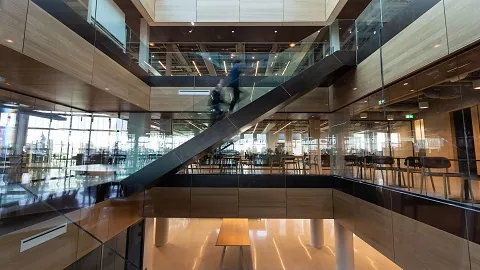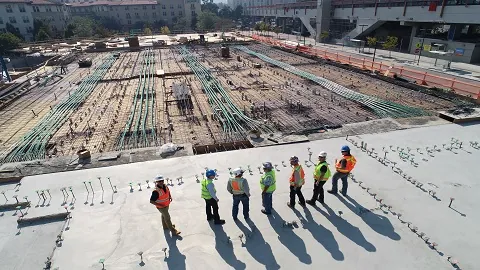"The goal of real estate is not just to own property but to create spaces where people and organisations thrive." – Adapted from industry insight
Facilities Management Career
With the increasing demand for skilled professionals to oversee buildings and services, facilities manager jobs have become vital in modern organisations. Facilities Managers ensure workplaces are safe, efficient, and functional, playing a crucial role in supporting both employees and business operations.
Facilities Managers: An Overview
A Facilities Manager is responsible for overseeing the operations and maintenance of physical spaces. Their job involves making sure that buildings, equipment, and services meet the needs of the people who work in them. This includes everything from managing budgets and coordinating repairs to ensuring compliance with health and safety standards.
Facilities Managers work across industries such as corporate offices, hospitals, schools, retail, and manufacturing plants. The role requires a balance of technical knowledge, organisational skills, and leadership ability.
- Introduction
- Typical Job Responsibilities
- Standard Work Environment
- Suggested Work Experience
- Recommended Qualifications
- Projected Career Map
- Beneficial Professional Development
- Learn More
- Conclusion
The role covers a wide range of facilities management responsibilities, often including:
• Supervising building maintenance, cleaning, and security services
• Managing budgets, contracts, and service providers
• Ensuring compliance with health, safety, and environmental regulations
• Overseeing space management and office layouts
• Coordinating repairs, refurbishments, and renovations
• Managing sustainability initiatives, including energy efficiency
• Conducting risk assessments and emergency planning
• Supporting staff by ensuring functional and safe workspaces
• Monitoring building systems such as HVAC, lighting, and plumbing
Responsibilities vary depending on the type and size of the organisation, but the central goal is always to maintain safe and efficient facilities.
"The goal of real estate is not just to own property but to create spaces where people and organisations thrive." – Adapted from industry insight
Facilities Management Career
With the increasing demand for skilled professionals to oversee buildings and services, facilities manager jobs have become vital in modern organisations. Facilities Managers ensure workplaces are safe, efficient, and functional, playing a crucial role in supporting both employees and business operations.
Facilities Managers: An Overview
A Facilities Manager is responsible for overseeing the operations and maintenance of physical spaces. Their job involves making sure that buildings, equipment, and services meet the needs of the people who work in them. This includes everything from managing budgets and coordinating repairs to ensuring compliance with health and safety standards.
Facilities Managers work across industries such as corporate offices, hospitals, schools, retail, and manufacturing plants. The role requires a balance of technical knowledge, organisational skills, and leadership ability.
The role covers a wide range of facilities management responsibilities, often including:
• Supervising building maintenance, cleaning, and security services
• Managing budgets, contracts, and service providers
• Ensuring compliance with health, safety, and environmental regulations
• Overseeing space management and office layouts
• Coordinating repairs, refurbishments, and renovations
• Managing sustainability initiatives, including energy efficiency
• Conducting risk assessments and emergency planning
• Supporting staff by ensuring functional and safe workspaces
• Monitoring building systems such as HVAC, lighting, and plumbing
Responsibilities vary depending on the type and size of the organisation, but the central goal is always to maintain safe and efficient facilities.
Facilities Managers typically work in office settings but spend significant time on-site inspecting facilities, liaising with contractors, and meeting employees. In large organisations, they may oversee teams of support staff, while in smaller companies, they may take a more hands-on role.
Many Facilities Managers also work flexible hours to deal with emergencies or coordinate work outside of business hours. Freelance or consultancy opportunities exist, where managers provide expertise to multiple clients.
Employers often seek candidates with prior experience in:
• Building maintenance or property management
• Health and safety compliance
• Contract negotiation and vendor management
• Budgeting and cost control
• Project management (refurbishments, moves, or expansions)
Experience can be gained through facilities administration roles, property maintenance work, or supervisory positions in related fields.
While it is possible to enter facilities management without a degree, qualifications can enhance career prospects. Useful certifications and training include:
• British Institute of Facilities Management (BIFM) qualifications
• NEBOSH Health and Safety Certificate
• Institute of Workplace and Facilities Management (IWFM) training
• Chartered Institute of Building (CIOB) courses
• Relevant degrees in engineering, business, or building services
Employers also value practical skills and proven experience in managing teams and large-scale facilities.
Facilities Managers often begin their careers as assistants or coordinators before advancing into management positions. Senior roles may include Head of Facilities, Director of Operations, or Property Services Director.
Entry-level salaries for Facilities Managers in the UK start around £25,000 to £30,000 annually. With several years of experience, mid-level managers can earn £35,000–£50,000. Senior Facilities Managers or Directors can command £60,000–£80,000+, particularly in large corporations.
The growing number of facilities manager jobs reflects the importance of maintaining sustainable, safe, and efficient buildings in every sector.
Facilities Managers can enhance their careers by:
• Staying updated on health, safety, and environmental regulations
• Developing expertise in sustainability and energy efficiency
• Building project management and leadership skills
• Networking within professional bodies like IWFM
• Learning new property management technologies
• Taking advanced training in budgeting and financial management
• Attending industry events and workshops
Success in this role depends on mastering several key areas:
- Organisation – coordinating multiple tasks and teams effectively
- Compliance – ensuring adherence to safety, environmental, and legal standards
- Communication – liaising between management, employees, and contractors
- Problem-solving – resolving emergencies and operational challenges quickly
- Leadership – motivating staff and contractors to deliver high-quality services
A career as a Facilities Manager offers:
• Job Security – demand is high across industries and sectors
• Professional Growth – opportunities to move into senior management roles
• Financial Rewards – competitive salaries and strong progression potential
• Flexibility – options to work in-house or as a consultant
• Variety – exposure to diverse facilities, from offices to hospitals to retail spaces
For individuals who enjoy problem-solving, leadership, and creating safe, efficient environments, facilities management provides a dynamic and rewarding career path.

















